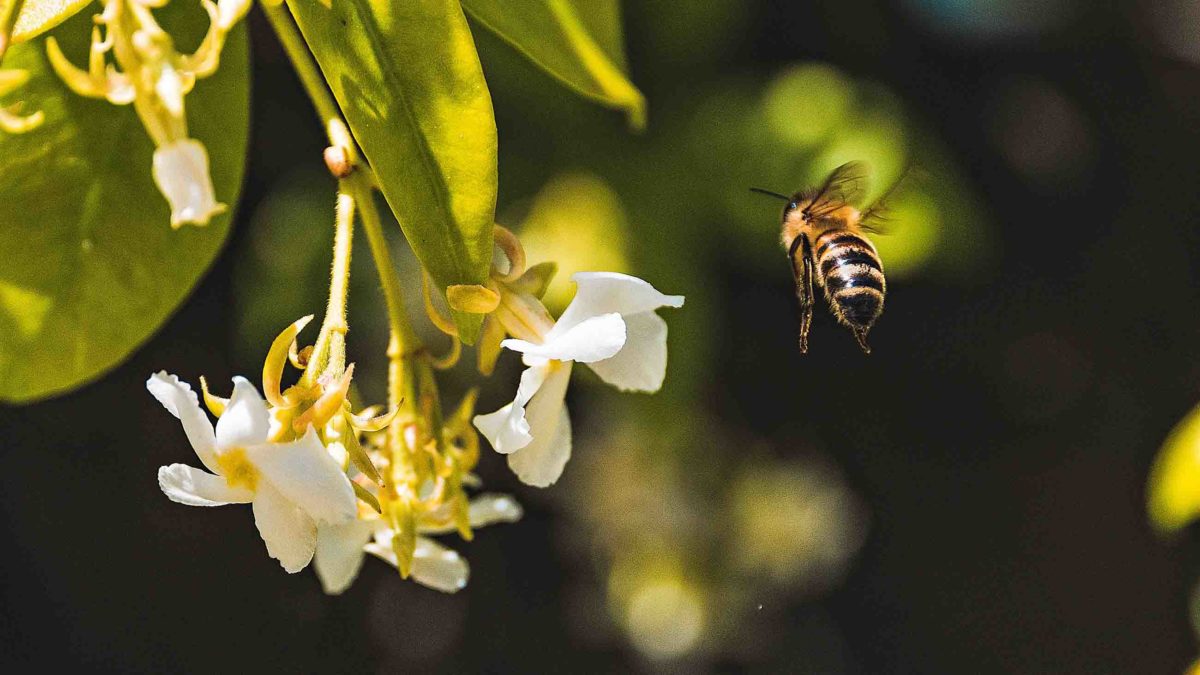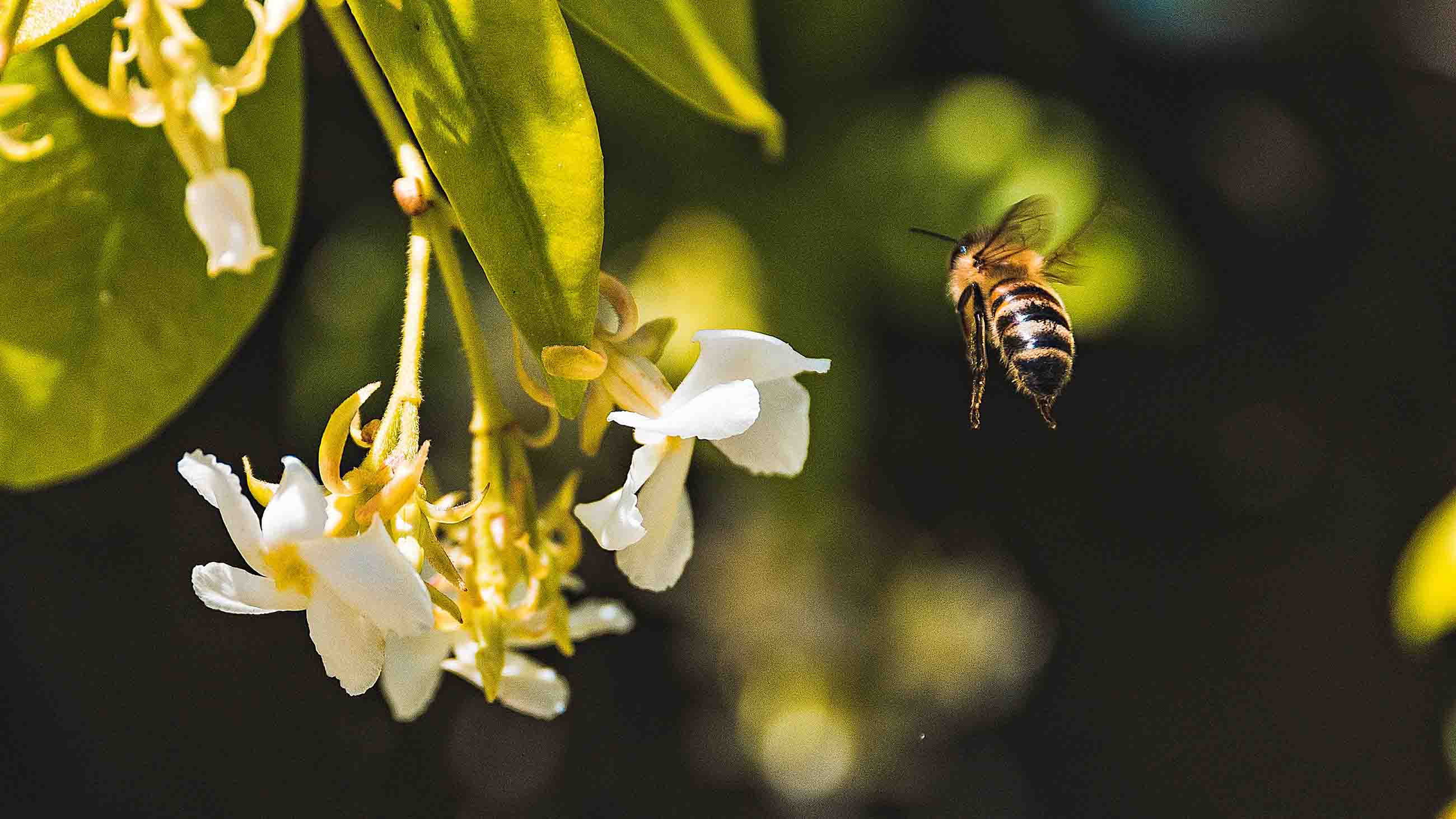Abstracts: Bees, Ozone, Underwater Forests, and More
• Two new studies add to the mounting evidence that neonicotinoids, the most commonly used family of insecticides, harm pollinating insects, especially bees. One of the studies found that the insecticide negatively impacts reproduction, while the other found that it reduces the lifespan of worker bees. (PBS)

New research finds that neonicotinoids kill bee colonies over an extended period of time.
Visual: Andrea Sonda/Unsplash
• Ten miles off the coast of Alabama lies an ancient underwater forest, which scientists believe dates back to an Ice Age when sea levels were lower. Its recent discovery offers a glimpse at what the coastline looked like 50,000 years ago — and at the fate of the Alabama coastline as the climate continues to warm. (Washington Post)
• A new threat to the ozone layer has been discovered, which could delay the recovery of the protective region of the stratosphere by up to 30 years — or possibly longer. New findings indicate that industrial emissions of dichloromethane, which is used in solvents, paint removers, and pharmaceuticals, doubled between 2004 and 2014, to the alarm of scientists. (Science Magazine)
• The Center for Public Integrity’s year-long investigation into safety concerns at U.S. nuclear weapons sites uncovered accidents that occurred without public notice, preventable radiation exposures affecting facilities’ workers, and insufficient penalties for these incidents. The five-part series covering these issues, “Nuclear Negligence,” was released this week. (Scientific American)
• The brightest light ever produced on Earth — one billion times the brightness of the sun’s surface — can apparently change the way that light and matter interact. Physicists from the University of Nebraska-Lincoln who made the discovery using high-intensity lasers believe it could prove important for medical, engineering, scientific, and security endeavors. (Seeker)
• Global food security is in jeopardy due to climate change, and policymakers “must take immediate action,” according to a new report released by the international affairs think tank Chatham House. (The Independent)
• Akinwumi Adesina, president of the African Development Bank, has won the 2017 World Food Prize for his success in increasing farm yields and incomes for farmers across Africa. In particular, his work has addressed the need to increase the productivity of the continent’s agricultural sector and to improve agricultural distribution models, especially in rural areas. (BBC)
• Dinosaurs might have been more sensitive creatures than previously believed, at least when it came to their snouts. Researchers from the University of Southampton have found new evidence that one type of carnivorous land dinosaur had a highly sensitive snout, which might have aided it during feeding and mating rituals. (The Guardian)
• And finally, scientists are trying to determine what caused the mysterious and unprecedented deaths of six North American right whales, which are highly endangered; approximately 500 individual members of the species remain worldwide. (National Geographic)










